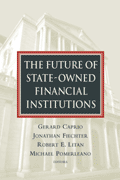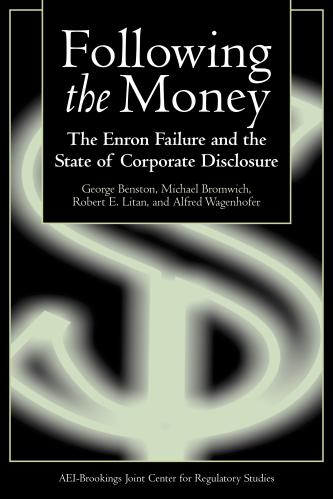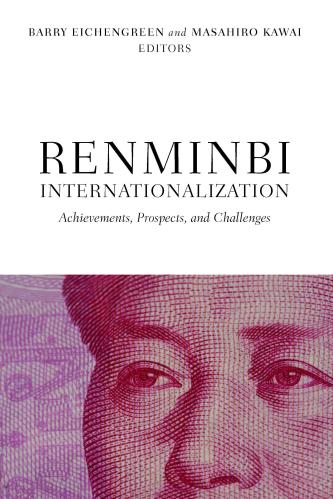This report is part of the Series on Financial Markets and Regulation and was produced by the Brookings Center on Regulation and Markets.
One of the core tenets of America’s terrorism finance and anti-money laundering (AML) strategies is that financial institutions are under an affirmative requirement to ‘know your customers’—or KYC. The centrality can be seen in the ubiquity of the KYC acronym, often appearing alongside AML as a merged six-letter short hand.
Despite the importance of the tenet, however, corporations are still legally able to set-up anonymous shell entities that are entitled to open bank accounts and not required to provide information regarding the company’s beneficial owners—a shady practice that received international attention almost one year ago with the publication of the now-infamous Panama Papers. How can banks be expected to know your customer, when the customer is entitled to anonymity? What are the implications of anonymous ownership and of revising this practice?
On Thursday March 30 from 2-4 PM EST, Brookings will explore these issues in detail with an all-star cast of experts, including Senator Sheldon Whitehouse and former Ambassador and Obama White House Ethics Czar Norm Eisen. You can register here to attend in-person or watch the webcast.
While the event will explore these issues in depth from both the financial regulatory perspective, as well as questions of foreign policy, government ethics, and economic growth, hearing from proponents of change and those who support the current system, the remainder of this post examines this issue in the banking context.
WHY ARE ANONYMOUSLY-HELD CORPORATIONS STILL ALLOWED?
It’s contradictory that the AML/KYC regime should exist alongside the ability for anonymous beneficial corporate ownership. It happens, however, because even though disclosure of corporate ownership is a requirement imposed by state governments and most states require disclosure, several states, most prominently Delaware, still allow anonymous beneficial ownership. Federal anti-money laundering laws have never overridden this condition and have simply tried to work around this by imposing requirements on financial institutions. However, achieving the substantive goal of AML—to catch the bad guys—has grown more costly, burdensome, and difficult under a state based regime that allows anonymous ownership.
The results are an example of a policy lose-lose: making it more difficult to achieve the goals of tracking down the bad guys, while growing costs are imposed ultimately on all users of the financial system. That’s right, you and I may be paying higher fees because anonymous shell corporations are allowed to register in Delaware.
That’s right, you and I may be paying higher fees because anonymous shell corporations are allowed to register in Delaware.
States have incentives to promote corporate incorporation given competition from other states. Incorporation generates income for states in the form of fees, taxes, as well as state specific businesses that derive from requirements to incorporate in that state (cottage industries). However, the federal government retains the ultimate right to regulate many activities and practices, including those used for foreign policy and enforcing federal criminal laws. Competition between states in areas that weaken national security would be an example of unhealthy competition and one where federal standards would make sense.
One reason for the growth in AML/KYC compliance cost has been the changing targets for financial surveillance. The anti-money laundering regime was originally created in the late 1960s to target organized crime (the mafia) and tax cheats. Recall that even before the AML system was in place, Al Capone went to jail not for his violent gangster behavior but for tax avoidance. In the 1980s, AML was expanded to go after organized drug cartels and narco-traffickers. After 9/11, the Patriot Act significantly expanded AML to target terrorists and terror finance. Each of these expansions logically responded to a key contemporary threat. However, these threats are substantively different: the AML regime used to target a multi-million dollar drug ring that is trying to export cash out of America is very different than that used to track financing for sleeper cells of Al Qaeda in America, international rebel groups or foreign state-sponsored terrorists.
SOLUTIONS MOVING FORWARD
Bipartisan legislation has been introduced in Congress to require disclosure of beneficial corporate ownership. Another proposal to improve AML, authored by the Clearing House (a trade association of large financial institutions), includes institution such a requirement and has been signed on to by a number of experts, including myself.
Financial institutions are central players in the U.S. government’s war on terror and increasingly in other foreign policy more broadly, such as sanctions that rely on AML and KYC compliance. To the extent that this goal requires financial institutions to extend greater resources, those costs and benefits should be balanced accordingly. This will also require a rethinking of various levels of privacy afforded to individuals and corporations. However, one place that policy should not land is a requirement for financial institutions to achieve something that is actively being made more difficult by certain states that are neither bearing the costs of their actions nor working cooperatively to achieve the national interest.
The Brookings Institution is committed to quality, independence, and impact.
We are supported by a diverse array of funders. In line with our values and policies, each Brookings publication represents the sole views of its author(s).








